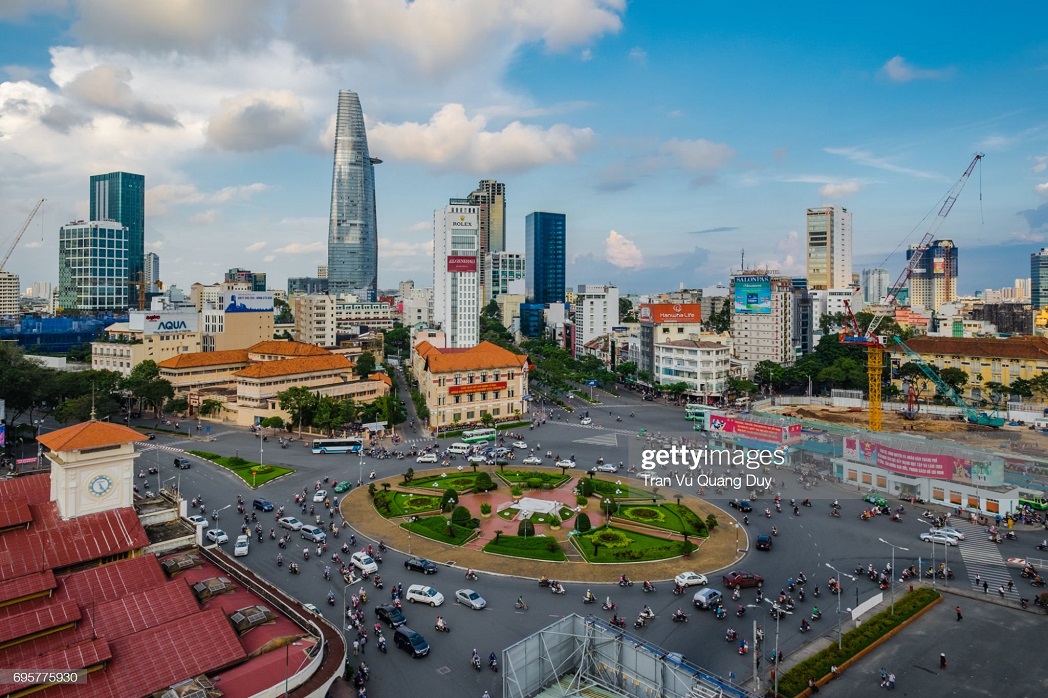ASEAN’s resilience may shine again in 2023
HSBC said ASEAN’s resilience is expected to shine again over the coming year – though with growth expected to slow.

Vietnam, too, won’t be able to shield itself entirely from slowing world trade, but it is likely to once again top the growth league in ASEAN
>> Vietnam - ASEAN trade sees positive growth
It’s tempting to think that after a rough and dizzying year, stability is quickly setting in. And, yes, the tracks have been laid for an improvement over the course of 2023. Commodity prices have come off their towering heights, to the relief of hard-pressed consumers and many businesses.
Central bankers may thus also begin to ease off tightening in the coming months, while the news from mainland China, of economic ‘re-opening’ and greater support for the battered housing market, hints at stronger growth that may well put a floor under regional trade.
Alas, the impact of all the turbulence in 2022 is yet to fully come through in terms of growth. The tightening in monetary policy affects investment decisions with a lag; consumers are bound to slow their spending as higher prices curtail their purchasing power; and exports are yet to fully feel the hit from tumbling orders placed with manufacturers everywhere.
And then there is mainland China. The relaxation of COVID-19 control measures should support a strong recovery in consumer spending, especially services. But experience from other places suggests that the process can be bumpy, with a pull-back during any infection spike preceding the eventual bounce. Housing support measures, too, may take time to filter through. As a result, growth in mainland China may turn out to be highly volatile, with a sharp contraction followed by a surge. On average, the economy should thus still deliver decent growth of 5% for 2023, which would also provide a boost to Hong Kong, not least with the arrival of more visitors. For Taiwan, however, the main challenge will continue to be a lacklustre global electronics cycle.
“Japan, meanwhile, is also likely to see growth slide, despite additional fiscal support to offset the impact of higher living costs and weakening global trade. Korea, too, faces external challenges, while higher interest rates are curbing local demand. The Bank of Korea may thus be among the first central banks in Asia to cut interest rates in 2023”, said HSBC.
In this, the Bok may be joined by the Reserve Bank of New Zealand, as the downturn in the Kiwi housing market is taking its toll on growth and employment. Australia, meanwhile, is facing stiffer headwinds as well as the re-opening bounce fizzles, though the labour market remains robust.
>> Vietnam sees great potential in ASEAN halal market
Growth is also expected to cool in India, where consumer spending has already started to pull back and monetary tightening is starting to exert its intended effect. Falling global energy prices, though, provide welcome relief, even if price pressures will prove sticky. Sri Lanka should see signs of further stabilisation, especially with an IMF program in place, though GDP may again contract for the full year. Bangladesh is weathering its acute challenges, and should see the benefits of normalising commodity prices flow through to the economy in 2023.
ASEAN’s resilience is expected to shine again over the coming year – though with growth expected to slow. “Indonesia may see less support from once sky-high commodity prices, even if demand remains robust enough to support investment and public revenues. Thailand’s economy is likely to be among the few to see growth accelerate thanks to reviving tourism. Singapore, despite its robust services sector, won’t be able to fully escape the vagaries of the global trade cycle. The Philippines, meanwhile, should see domestic demand cool as the lagged impact of higher interest rates and surging inflation unfolds. Vietnam, too, won’t be able to shield itself entirely from slowing world trade, but it is likely to once again top the growth league in ASEAN”, emphasized HSBC.








